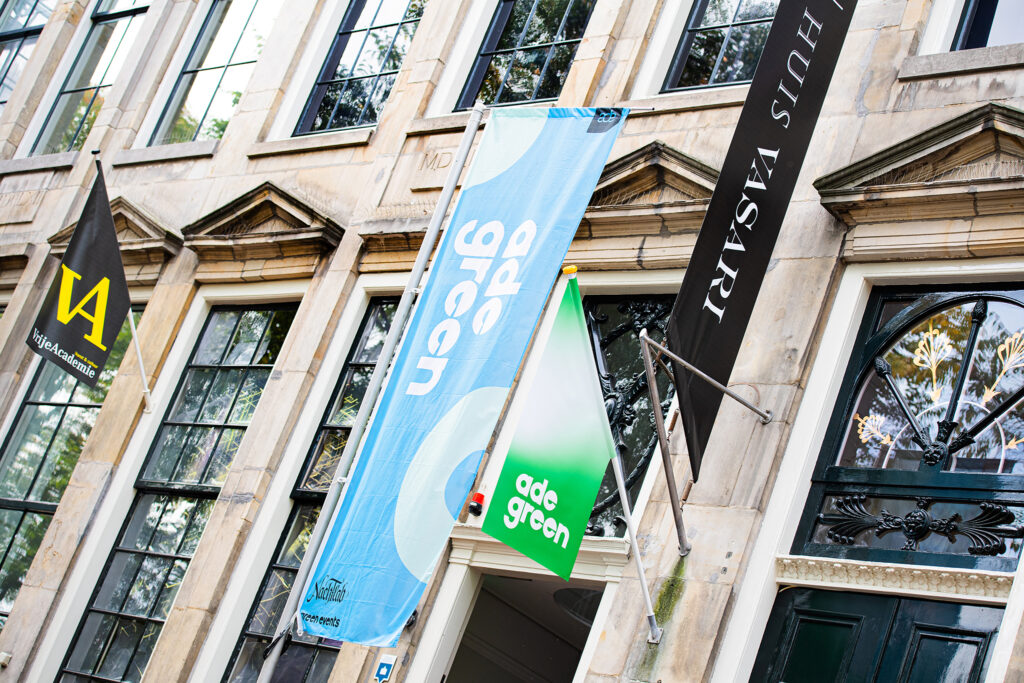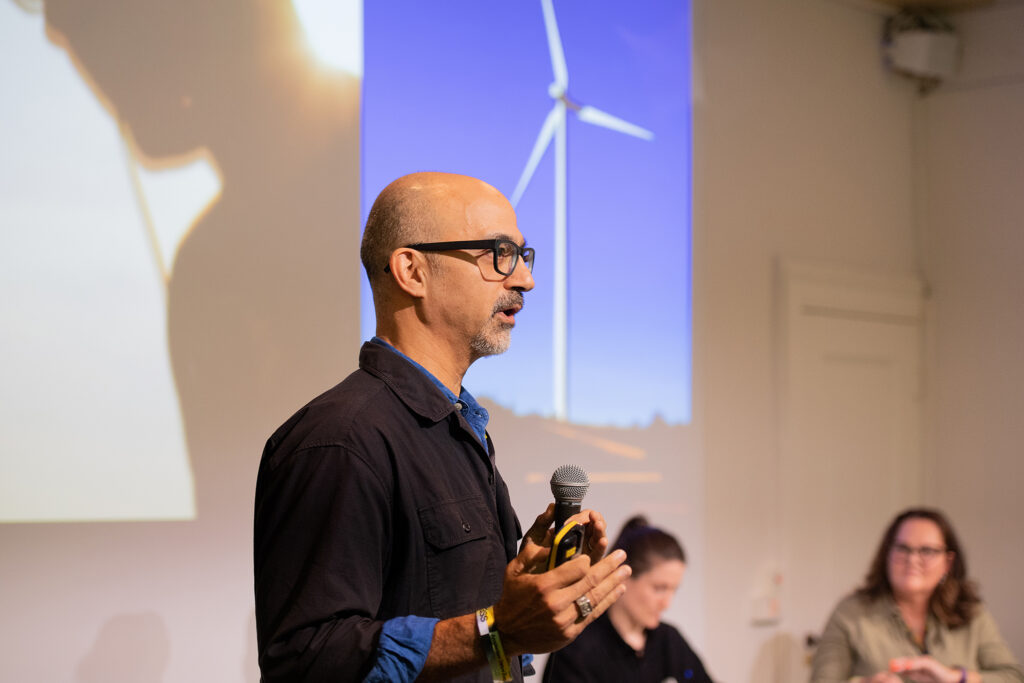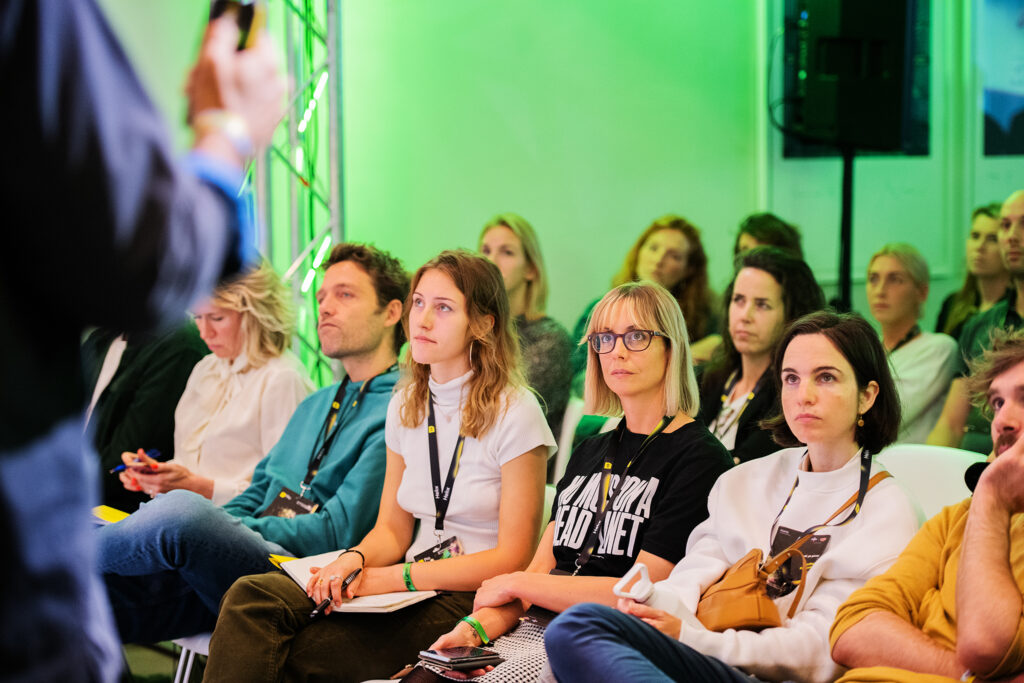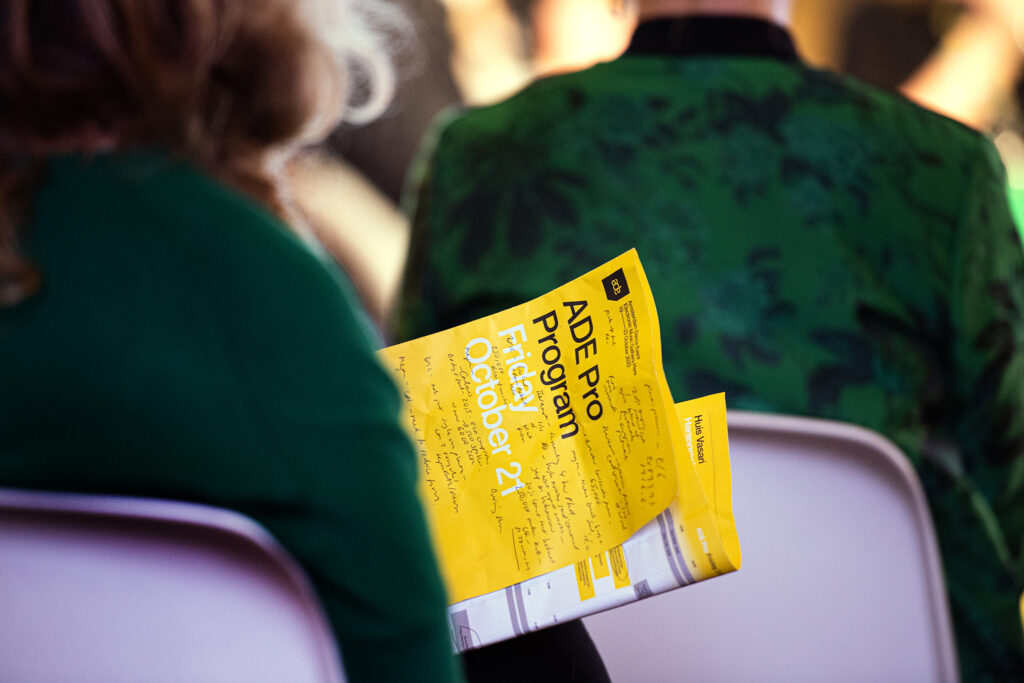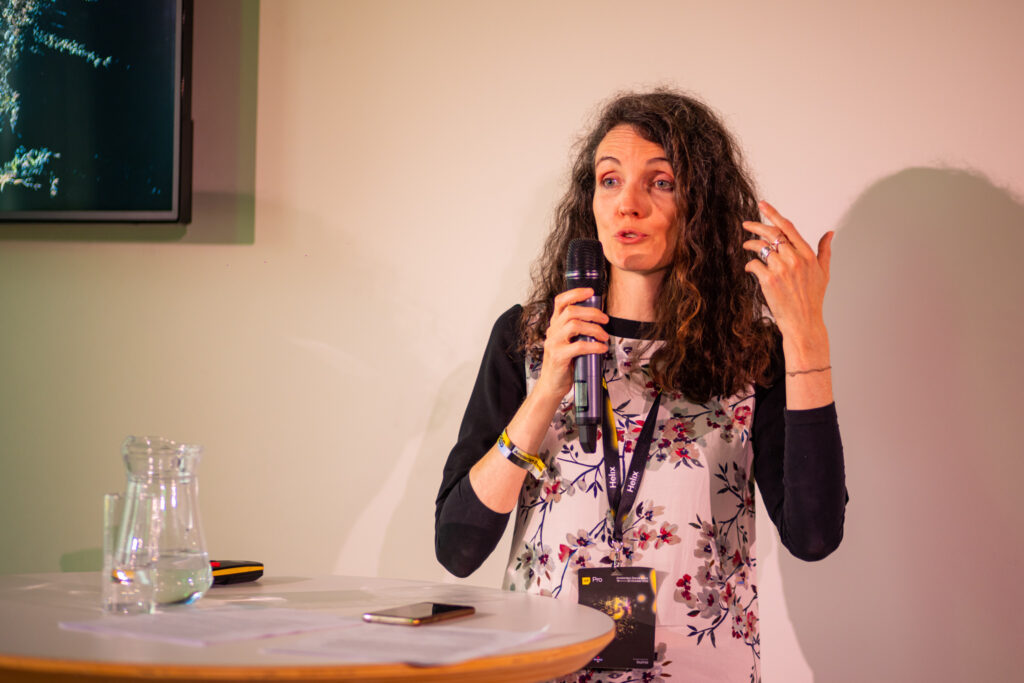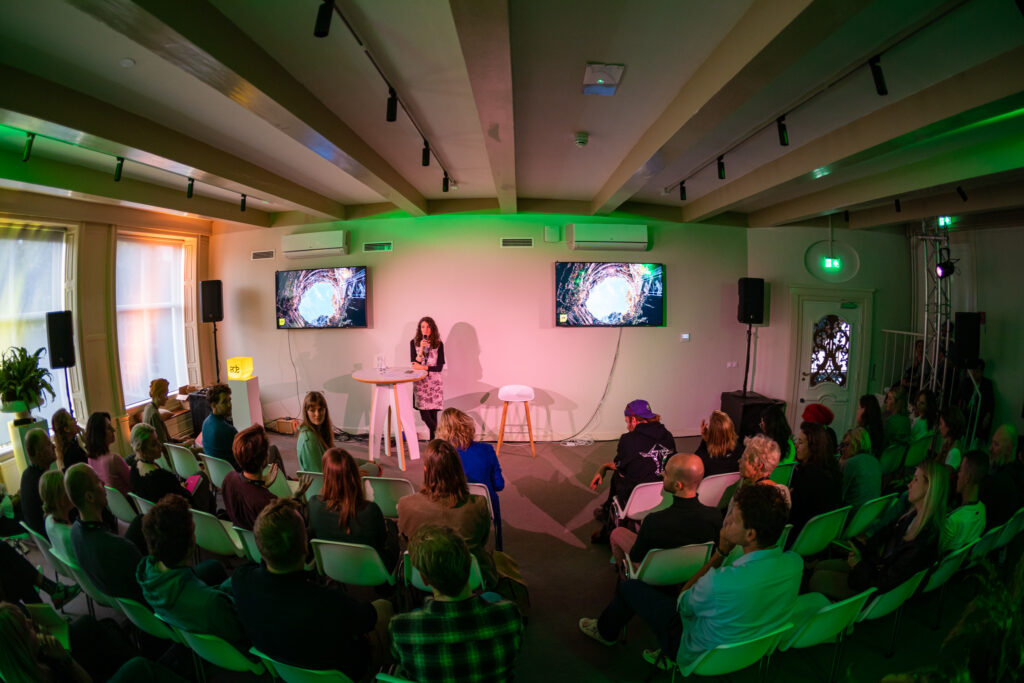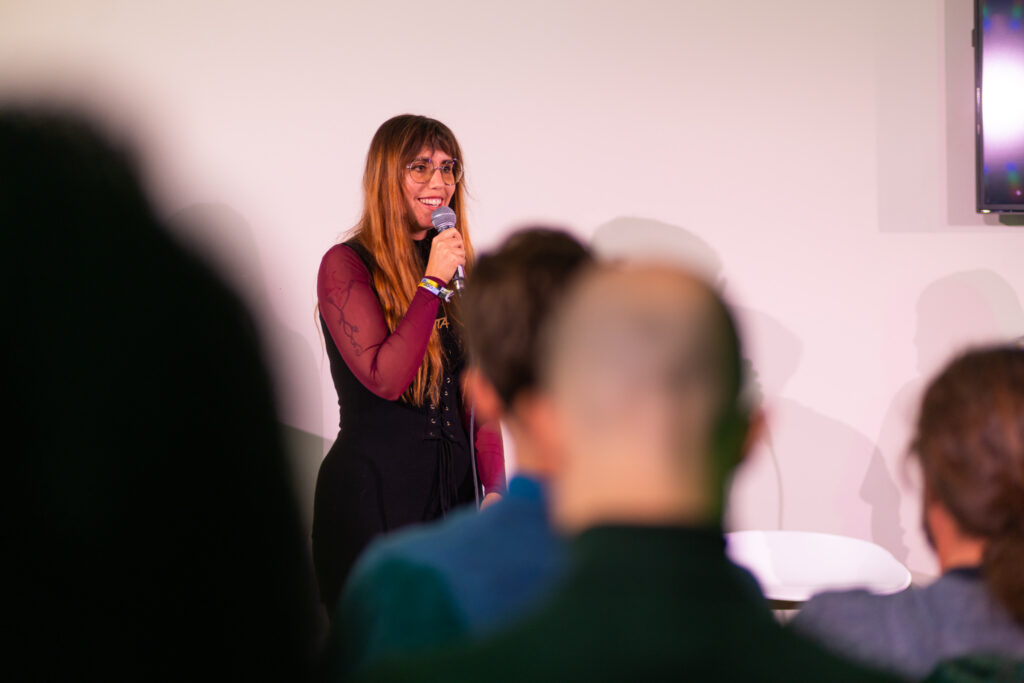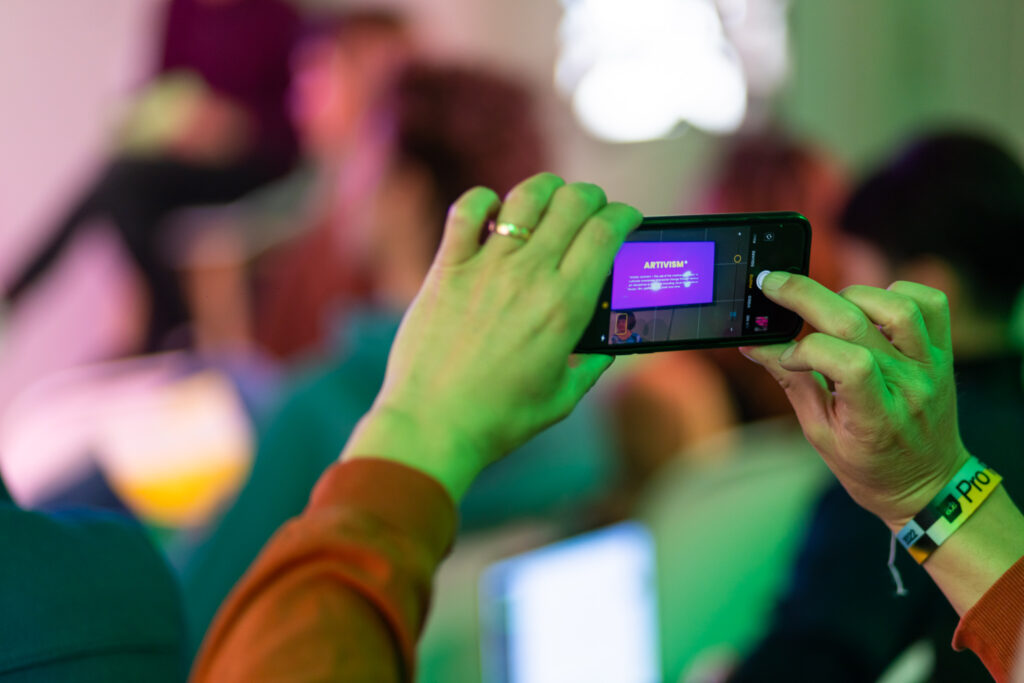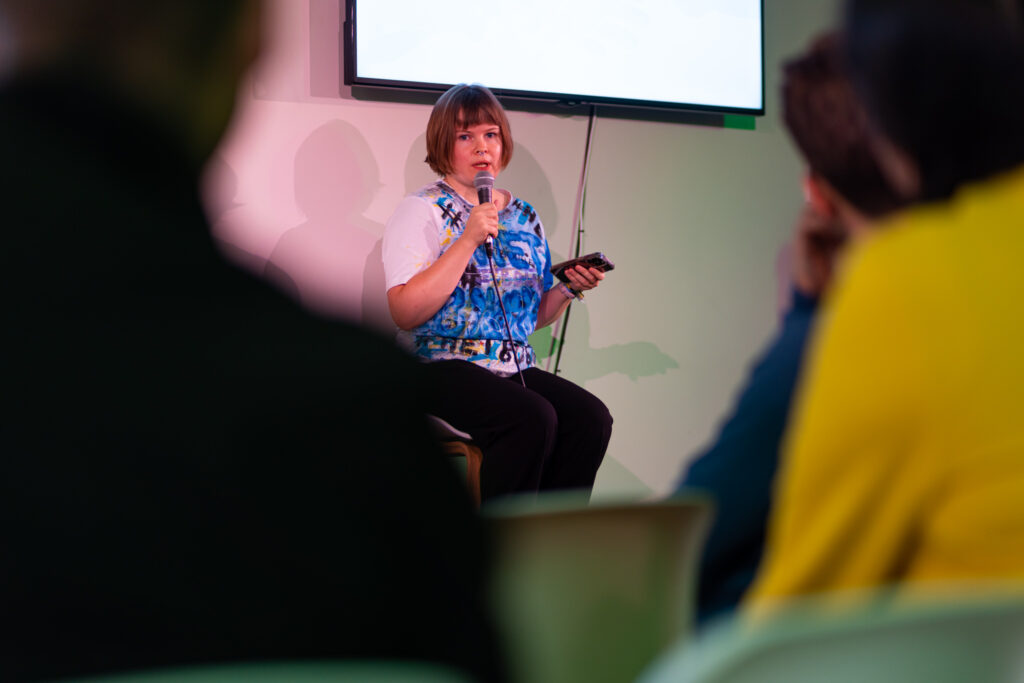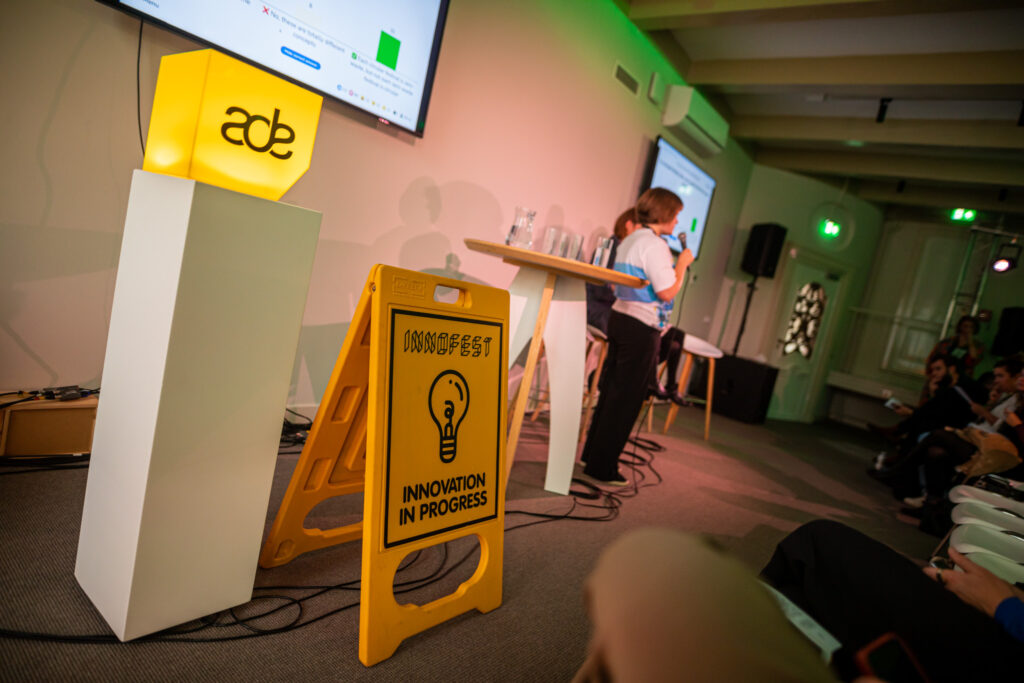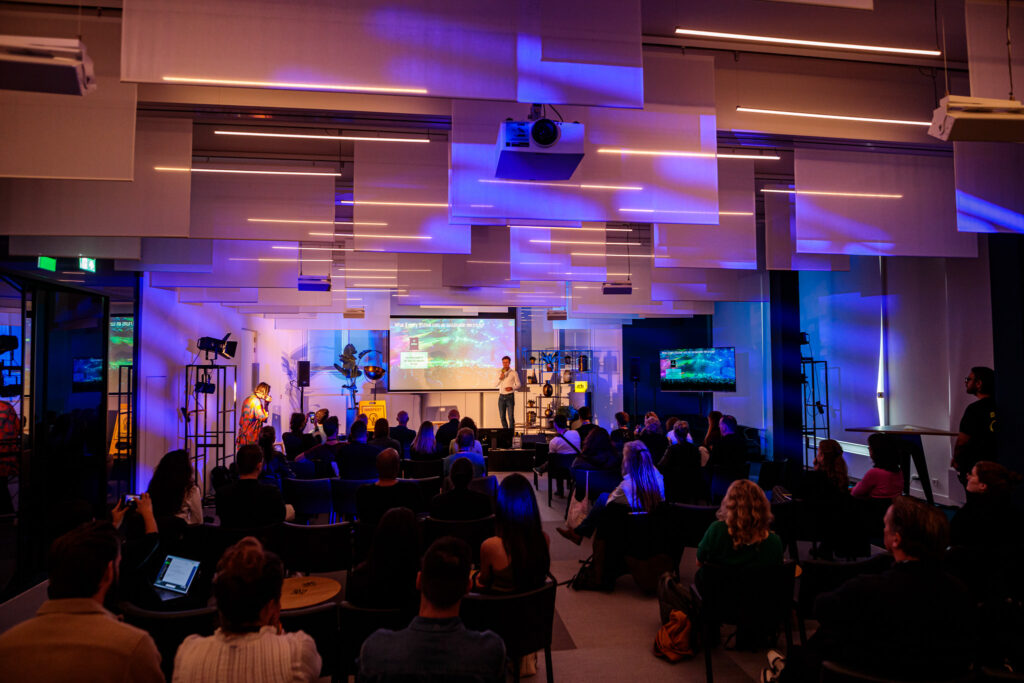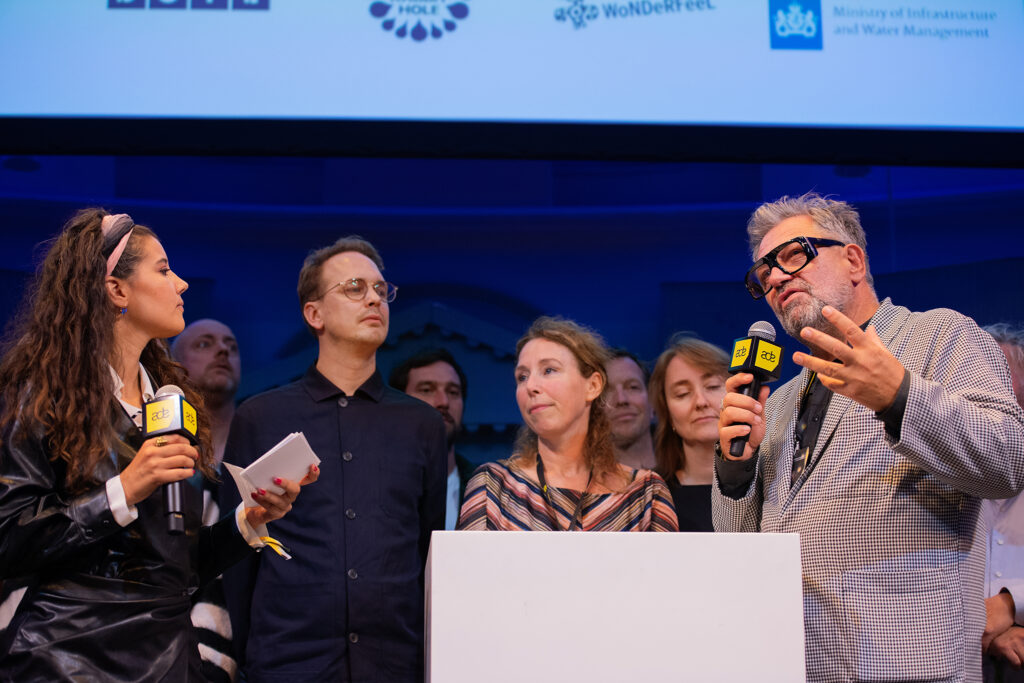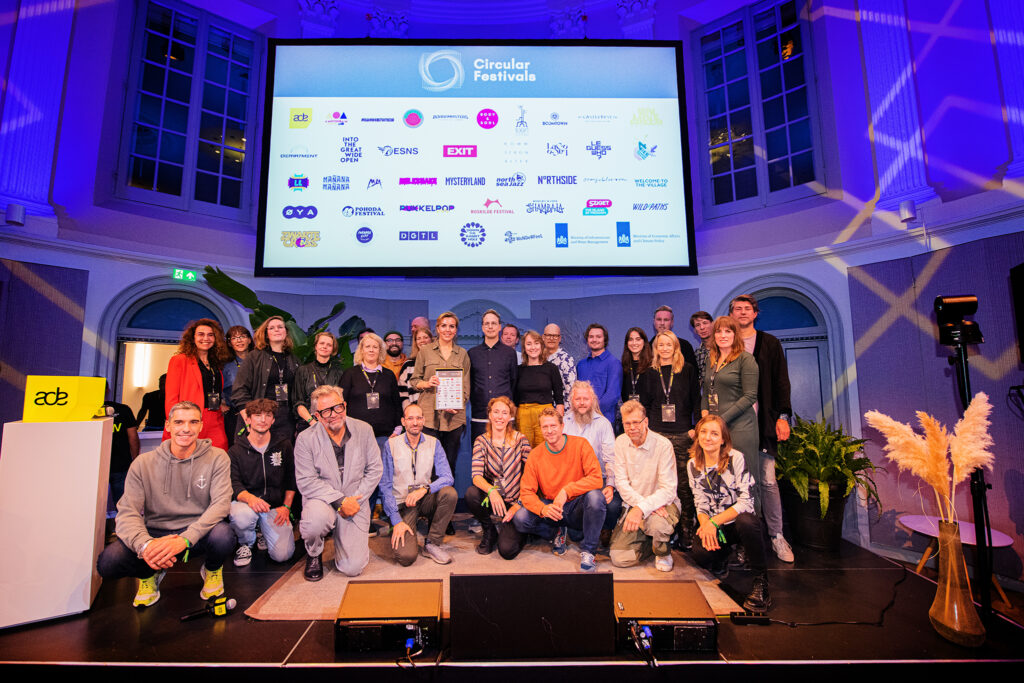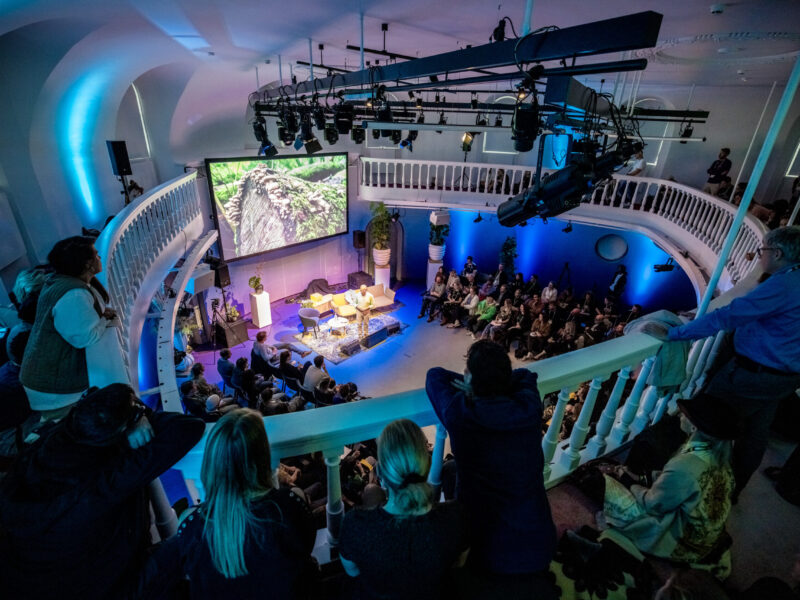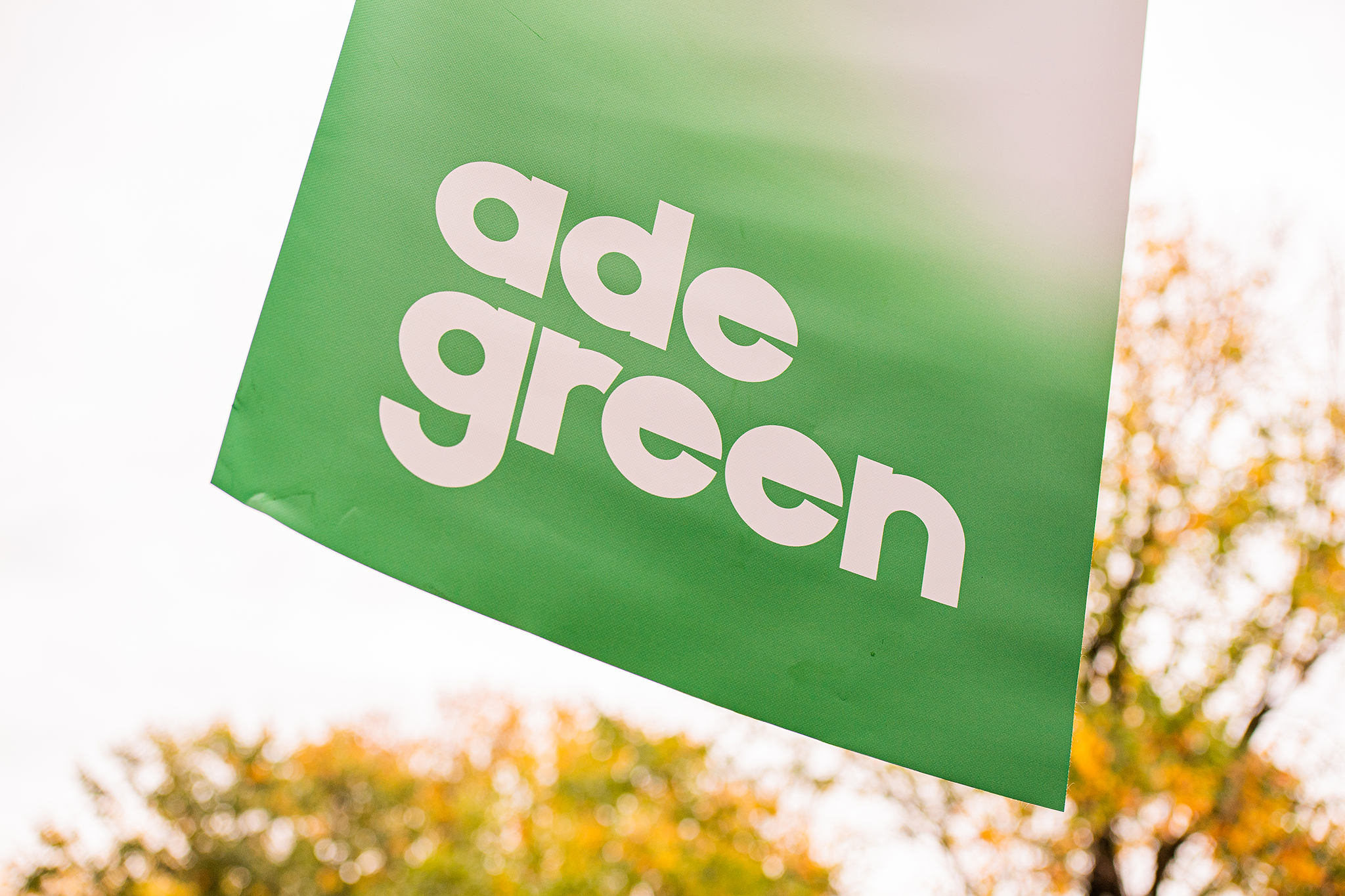
A recap of ADE Green 2022
Words by Niels Arnbak and Nanna Lodewijk. Images by Kim Balster and Marco Scheurink.
ADE Green 2022 is a wrap. After a decade of conferences on event sustainability, innovation and social change, there are still plenty of new and renewed insights to share, as this recap will show, featuring key insights from our industry’s top minds and experts.
The ever-changing frontier of climate change
We need a cultural transformation to redesign the way we eat, live, travel, work and party. We need to shift from small, isolated actions to collaborative impact. But how do we start and make significant changes in everything we do? This question was at the heart of the Combat Climate Change panel, where John E. Fernàndez (Director, Environmental Solutions Initiative at MIT) said: “What we need right now is the imaginative power of directly connecting the creativity of artists with the ingenuity of scientists and engineers. We will not achieve the huge emissions reductions required to avoid catastrophic consequences if we do not trigger radical collaboration between art and science”. So in other words: when it comes to actions, the music industry can, and should, help.
Inspiration from indigenous knowledge and transformative thinking
Oftentimes, the change needed from our industry starts from within, from us as individuals. Ideas emerge from our human minds in dialogue with our bodies. How can we use emotions, imagination and creativity to drive change and build a thriving world? Laureline Simon (founder of One Resilient Earth), speaking on the growth of a transformative mindset workshop, suggested: “We should have more courage to talk about our emotions in a professional context. This can give us new visions, more creativity and deeper connection.” How to move forward? By looking into various directions and perspectives. “Listen to the indigenous knowledge holders. They are only 5% of the population but there is a lot to learn from them”. After all, while we know a lot about climate change, even researchers are still discovering surprising facts. As flying is always a pressing issue in this industry, John E. Fernàndez brought up contrails, the artificial clouds of water vapor created by jet airplanes at high altitude: “Contrails are responsible for about 3 percent of global warming, mostly at night when they trap heat radiating from land. Also, contrails formed during the last 6 hours contribute to more warming than all of the accumulated carbon dioxide emissions since the beginning of aviation. This is, of course, completely non-intuitive. So, limiting contrails and flying at night should be high on the list of climate actions’.
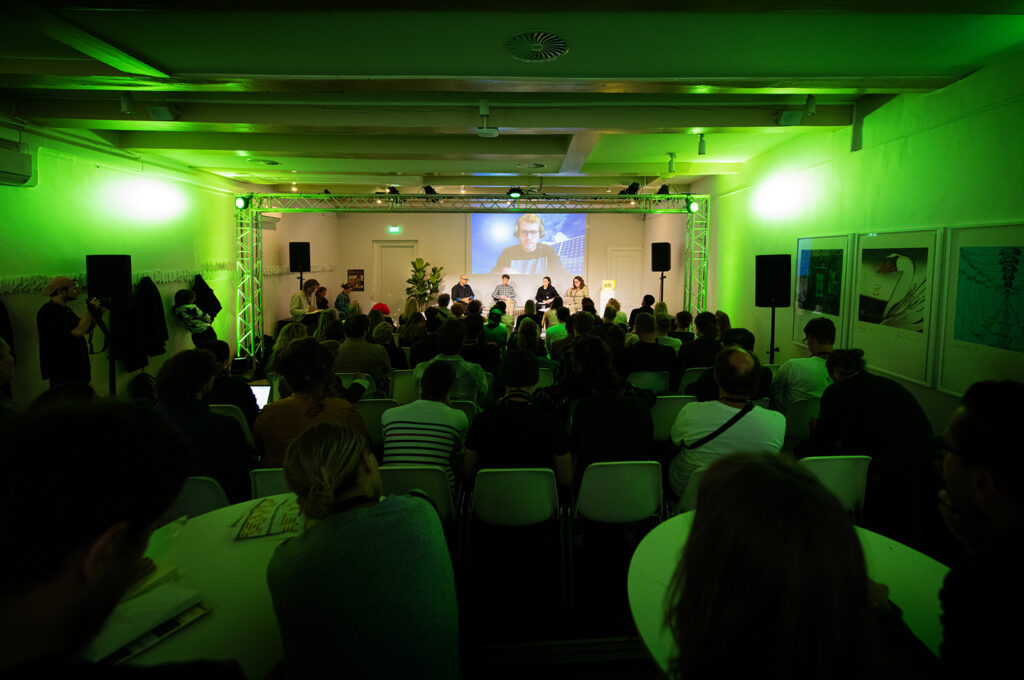
Integrating climate action into daily practice
On a more practical note, Rob van Wegen (Sustainability Supervisor at ESNS) warned against perfectionism: “Don’t let perfect be the enemy of good. Get into action even though you don’t have 100% of the data in place.” He gave a practical example of how promoters can take action: “We kindly pushed artists to take the train and paid for the difference in price.” The next step is artists sharing such stories, as Luke Howell from Hope Solutions pointed out: “If artists keep on sharing their story about climate change they can be the change. This should be a topic for the fans to think about on a day-to-day basis, outside the concerts.”
The artist as activist
But what if you live in an authoritarian regime and your government leaders are not really invested in changing the world for the better? How can you make your voice heard as an artist? Alina Minkova shared her personal story on how she supports artists. She believes that art is one of the last resorts for expressing alternative views in such repressive regimes, as it is a softer kind of activism, which she calls ‘artivism’. After some impressive examples of critical art created, the question on everybody’s lips in the room was “How can we help?” The answer was as simple as it was actionable: “Expressing solidarity means the world to them.”
The right environment for innovations
Of course, the potential for impact reaches beyond artists and promoters. Festival organizers can lead by example too. Van Wegen: “Festivals are modeling a new kind of living. A new world is created, open for innovation, a perfect test ground for real life”. After all, Festivals can be regarded as a microcosm where all human needs come together and, therefore, as an ideal testing ground for circular innovations that might help society in the long run. This was demonstrated by a roundup of the successful festival pilots that was presented at the Innofest panel. Innofest enables green entrepreneurs and innovative businesses to test their new products at festival sites – and during ADE Green, the five most promising startups of 2022 with the goal of festival sustainability have presented their innovations: the emission-free energy supply of Watermeln, the trash recycler of Uppcat and the online ingredients checker of the Blockchain Burger, the integrated solar panels in building fences by Solar Carpet, and circular organic waste removal by Bokashi were Innofest’s top 5 tried-and-tested inventions from this festival season.
A great deal of awareness
Looking at the developments and the great potential of our industry, it becomes as clear as ever that festivals play a major role in accelerating positive change towards a circular and climate-neutral future. This year’s ADE Green was concluded by a festive moment: 22 new festival organizations joined the international Green Deal Circular Festivals. The deal was launched during ADE Green 2019, providing a platform to connect and collaborate, inspire each other, innovate together, learn from each other and develop solutions that can be put into practice by other festivals, events, and cities worldwide. During this part of the program, festivals that are new to the deal were invited onstage with Dutch Minister for the Environment Vivianne Heijnen to discuss why collaboration with the Dutch government is essential. Lowlands director Eric van Eerdenburg presented the first circular camping table, made of recycled camping waste of the latest Lowlands edition. The camping table was created during a pilot of the Green Deal Circular Festivals, in which Lowlands collaborated with UPPACT and Innofest. During the pilot, the technology was tested to reuse camping waste from festivals to high-quality materials for future editions. Lowlands director Eric van Eerdenburg: “What is happening at Lowlands now will soon be commonplace at European festivals and hopefully throughout society, as a result of the collaboration in the GDCF. What is possible at Lowlands, can be done everywhere.” Minister for the Environment Vivianne Heijnen also emphasizes the importance of circularity: “This is a good example of circular economy in practice. It is nice to see the innovative strength of the sector. The collaboration with festivals is a good example for other sectors.”
Keep in the loop with important industry projects
Besides providing a space for sharing thoughts and exchanging ideas, ADE Green has always been a place where industry-wide projects and collaborations see the light of day. This year, Future Festival Tools hosted a learn- and work session, as a sneak preview into the set of freely accessible knowledge tools, including self-assessment, inspirational stories from across Europe and an e-learning course that are now available. Festival Sustainability Lab, a recently launched collaboration between One Resilient Earth, Innofest, LiveGreen and Green Events, announced the opening of their digital labs. You can now register for a Masterclass in Event Sustainability, a Deep Dive into Climate Resilience, and Test Like The Best through their website. As part of an initiative between HandicapNL and Green Events, a group of ten leading festivals, including Awakenings, Amsterdam Open Air, Oerol and STRAF_WERK, have joined the ‘Onbeperkt Feest‘ promise as frontrunners, taking concrete steps towards a more accessible festival. Last but not least, 22 new festival organizations joined the international Green Deal Circular Festivals to accelerate positive change towards a circular and climate-neutral future.


